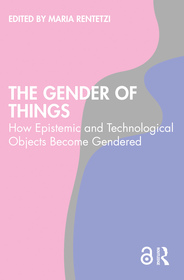
Queering the Museum
Sorozatcím: Museums in Focus;
-
20% KEDVEZMÉNY?
- A kedvezmény csak az 'Értesítés a kedvenc témákról' hírlevelünk címzettjeinek rendeléseire érvényes.
- Kiadói listaár GBP 22.99
-
10 983 Ft (10 460 Ft + 5% áfa)
Az ár azért becsült, mert a rendelés pillanatában nem lehet pontosan tudni, hogy a beérkezéskor milyen lesz a forint árfolyama az adott termék eredeti devizájához képest. Ha a forint romlana, kissé többet, ha javulna, kissé kevesebbet kell majd fizetnie.
- Kedvezmény(ek) 20% (cc. 2 197 Ft off)
- Kedvezményes ár 8 786 Ft (8 368 Ft + 5% áfa)
Iratkozzon fel most és részesüljön kedvezőbb árainkból!
Feliratkozom
10 983 Ft

Beszerezhetőség
Becsült beszerzési idő: A Prosperónál jelenleg nincsen raktáron, de a kiadónál igen. Beszerzés kb. 3-5 hét..
A Prosperónál jelenleg nincsen raktáron.
Why don't you give exact delivery time?
A beszerzés időigényét az eddigi tapasztalatokra alapozva adjuk meg. Azért becsült, mert a terméket külföldről hozzuk be, így a kiadó kiszolgálásának pillanatnyi gyorsaságától is függ. A megadottnál gyorsabb és lassabb szállítás is elképzelhető, de mindent megteszünk, hogy Ön a lehető leghamarabb jusson hozzá a termékhez.
A termék adatai:
- Kiadás sorszáma 1
- Kiadó Routledge
- Megjelenés dátuma 2021. június 30.
- ISBN 9781032085944
- Kötéstípus Puhakötés
- Terjedelem122 oldal
- Méret 216x138 mm
- Súly 560 g
- Nyelv angol
- Illusztrációk 6 Illustrations, black & white 175
Kategóriák
Rövid leírás:
Queering the Museum develops a queer analysis of the ways in which museums construct themselves, their core business, and their publics through the, often unconscious, use of inherited ways of knowing and doing.
Több
Hosszú leírás:
Queering the Museum develops a queer analysis of the ways in which museums construct themselves, their core business, and their publics through the, often unconscious, use of inherited ways of knowing and doing.
Providing a critique of both the practices and conventions associated with the modern public museum, and the ontological assumptions that inform them, the authors consider recent discourse around inclusion in museums and explore the ways this has been taken up in practice. Highlighting the limits of particular approaches to inclusion, and the failure to move away from a traditional museological paradigm, the book outlines an alternative critical museological approach that the authors refer to as ‘queer’. Providing readers with the critical tools necessary for a profound rethinking of museum practice, the book also responds to and problematises the growing call for social inclusion.
Queering the Museum will appeal to academics, students, and museum and arts sector practitioners with an interest in critical theory or queer practice. It will be of particular interest to those working in the fields of museum studies, sociology, archaeology, anthropology, cultural studies, media, social policy, politics, philosophy, and history.
"In Nikki Sullivan’s and Craig Middleton’s Queering the Museum, we witness alternative offerings that question, deconstruct, and reimagine what museums can be doing. They critique the institution of museums by exploring queer methodologies within and outside of the museum and addressing this institution as much as an entity as an action. Delving into critical race theory, indigenous studies, queer studies, feminist methodologies, cultural studies, the authors position museums as being shaped by the world around them, aspiring for inclusion yet continuing to hide and exclude the other-ed, and needing to advocate for museums’ participation in critical reflections and approaches to this work. While this book can serve as a helpful toolkit for pushing, reimagining, and queering museums, Sullivan and Middleton resist the notion that there is a prescribed remedy or formula to queering the museum." Sarita Hernández, SQS 1-2/2020, Queer Eye reviews.
"The book encourages readers from the outset to push back against the idea that there is one way to pursue its subject matter. Instead, it urges readers to ‘avoid conceiving museums and museological practice in binary terms – good/bad, us/them, progressive/anachronistic, inclusive/exclusory’ (3). Queering the Museum lives into this premise, complicating and challenging binaries both formal and implicit." C.M Wilson, University of Leicester
TöbbTartalomjegyzék:
Introduction; 1.From LGBTIQ+ inclusion to queer ethics; 2. Queer/ing display; 3. Queer/ing meaning-making; 4.Queer/ing engagement; Conclusion
Több










